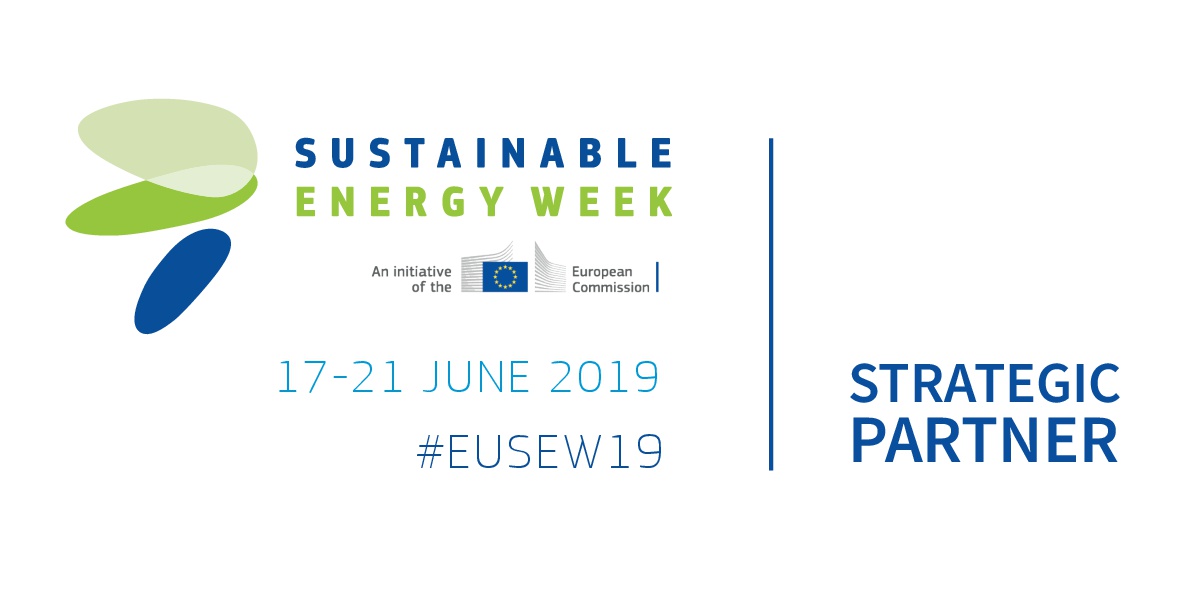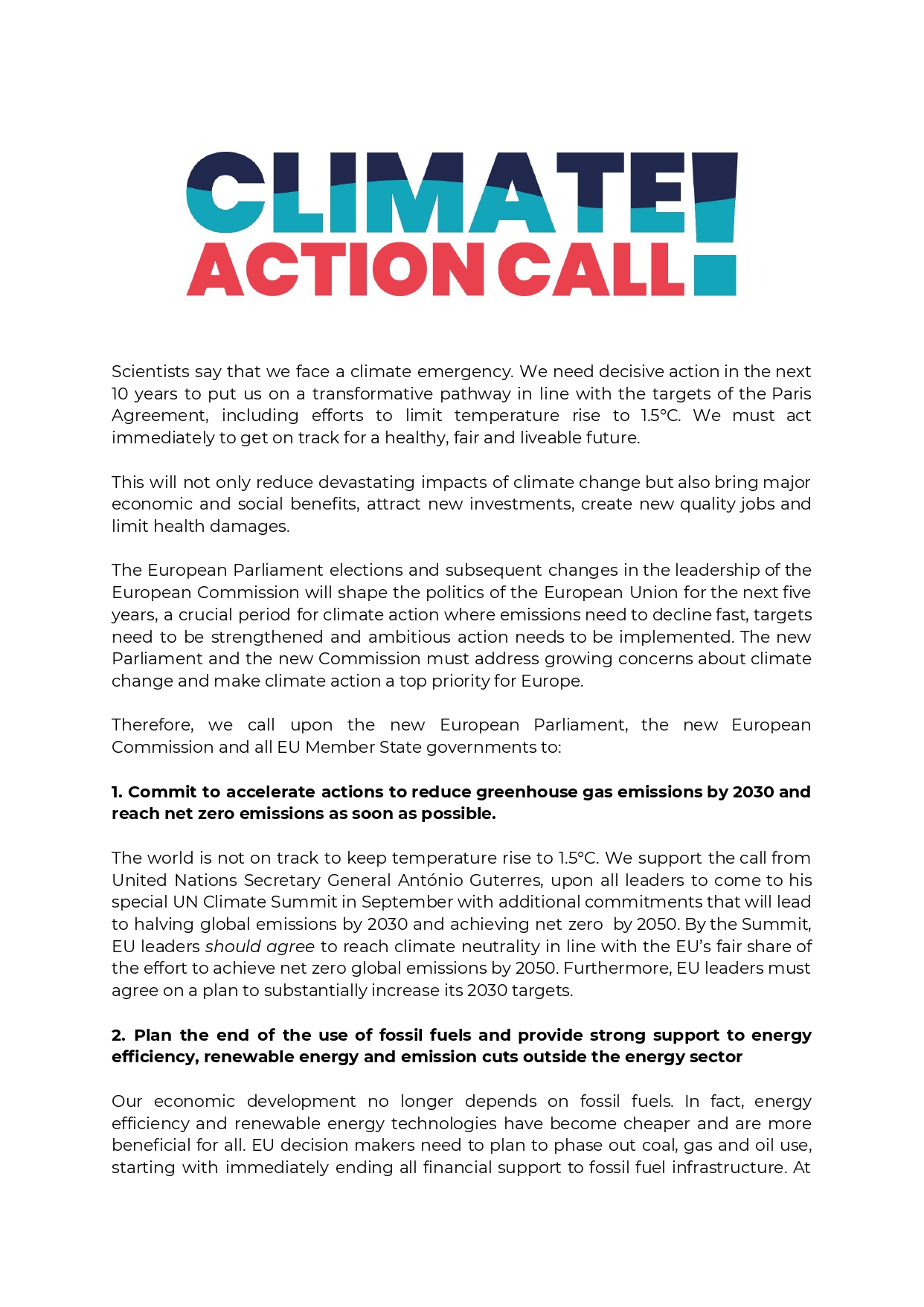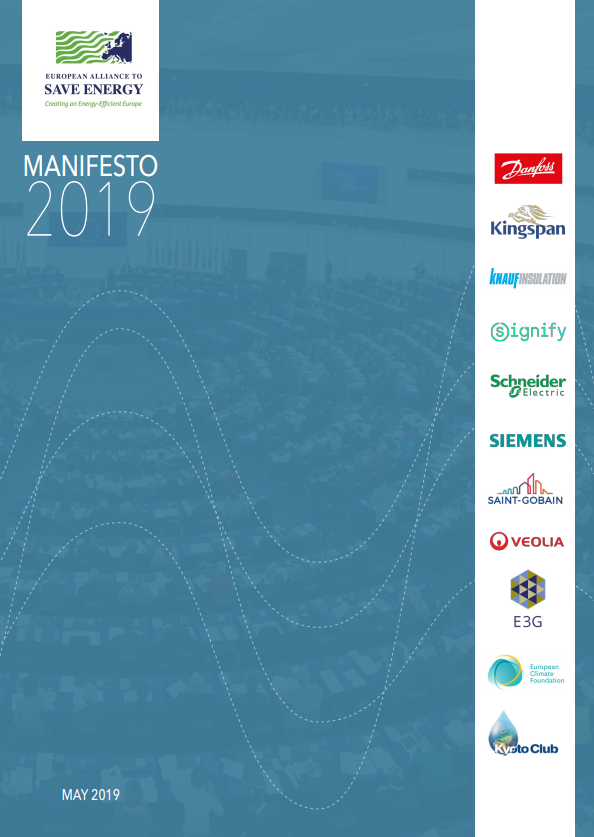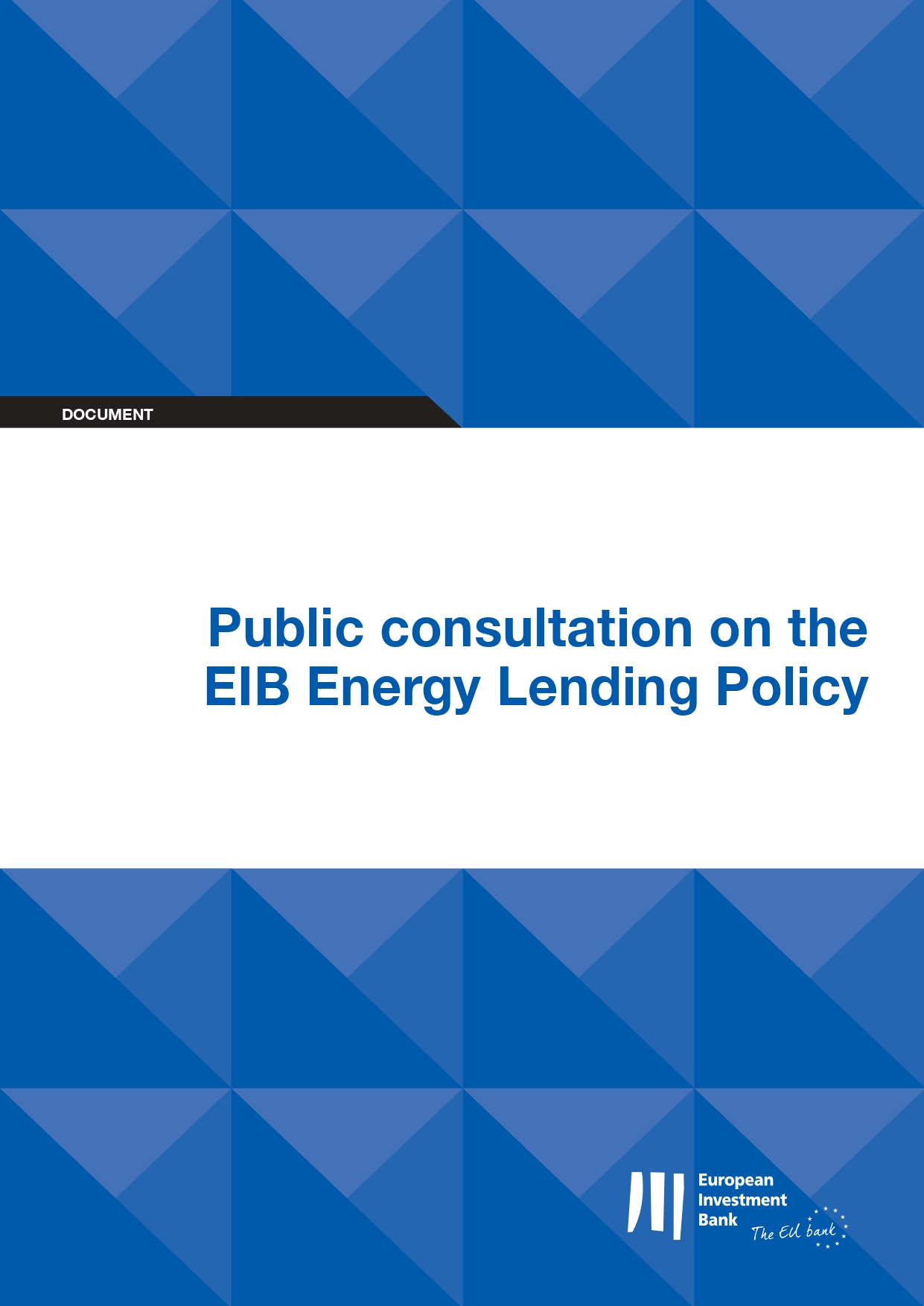QUESTION 3
Within the broad areas of renewables, energy efficiency and energy grids, are there particular areas where you feel the Bank could have higher impact?
The European Union has estimated that to meet its 2030 climate and energy targets, around €180 billion would be required every year until 2030 in extra investment in energy efficiency, renewable energy, and clean transport. This figure needs to be further revised given that it uses a 2016 reference scenario and only a 30% energy efficiency and renewable energy targets for 2030, instead of the recently agreed targets of 32.5% and 32% respectively. Together these revised targets would lead to 45% GHG emission reduction target, which is still below the required reduction pathway to achieve the Paris Agreement objective.
According to the IEA modelling, energy efficiency makes the largest contribution to global emissions reduction and in the EU, energy efficiency can deliver 76% of the emission reduction required to achieve the Paris Agreement commitments.
Thus the EIB should invest more in energy efficiency projects across all economic sectors, and focus particularly on those with high potential for energy use reduction, such as buildings. Building renovation projects, intended for both energy savings and buildings’ integration into a connected energy, storage, digital and transport system, deserve specific attention, as it is here that the EIB lending could have the highest impact, contributing to fill an estimated investment gap of 130 billion/year by 2030.
In order to increase investments in energy efficiency projects and promote the integration of the Energy Efficiency First principle.
The EIB should:
- Fully apply the Energy Efficiency First principle and ask project promoters to embed the principle to first assess the economic opportunity to reduce energy consumption through cost effective energy efficiency solutions before investing in new sustainable supply capacities;
- To do so, change its project appraisal guidance, to make sure economic appraisals systematically consider “do something (else)” counterfactual scenarios;
- Further develop programmes that provide technical assistance for energy efficiency projects (e.g. upscale the Elena funding).
QUESTION 4
How can EIB reinforce its impact towards ensuring affordability, addressing social and regional disparities and support a just energy transformation?
While the EU is currently defining its vision for a climate neutral future, we are confronted with several challenges that can be addressed thanks to the support from the EIB. The three main challenges are without a doubt: increased investment needs in the energy sector, rising energy poverty and growing disparities among European regions.
While over the next decade, energy related investments will have to double, millions of European citizens expect a transition that will tackle the devastating impact of climate change and energy poverty in Europe. Indeed, more than 50 million people across Europe live in energy poverty and are unable to pay their energy bills. The energy transition provides us with a concrete opportunity to alleviate energy poverty in Europe if, across all sectors, ambitious measures to increase the rate of energy efficiency improvement are put in place.
The EIB energy lending policy can significantly help to address this problem and lead the way to a sustainable future for the good of citizens, businesses and the environment by making energy efficiency first an imperative principle of its investments decisions.
In order to support a just transition and help low-income Member States and their regions that might face a more difficult path to decarbonize their economy, the EIB should provide assistance for developing transition plans that consider the specific needs of areas where the economy is still heavily reliant on fossil fuels. The investment outlay necessary to decarbonize the energy sector in these areas is significant, and the EIB should think of ad hoc instruments and financial support for Member States with GDP per capita below EU average.
To reinforce its impact towards a successful energy transition the EIB should cooperate with national development and commercial banks in each country. The EIB’s instruments should be complementary and work together (rather than compete) with national energy efficiency programmes.
QUESTION 5
In the case of new buildings, do you have an opinion on the proposed approach to support only buildings that go beyond the mandatory nZEB standard after 2021? What level of ambition should the Bank focus upon, inside and outside the EU?
In Europe, the buildings sector is responsible for around 40% of final energy consumption and nearly 36% of total direct and indirect CO2 emissions. 97% of the EU building stock is still in urgent need of an energy efficiency upgrade (cf BPIE). This is why if the EIB wants to achieve real impact it should support new and existing buildings and their deep staged renovation. According to the revised EPBD, each Member State needs to establish a national long-term renovation strategy to support the renovation of residential and non-residential buildings, into highly energy efficient and decarbonized building stock by 2050, facilitating the transformation of existing buildings into nearly zero energy buildings (nZEB).
We also suggest exploring the possibility of creating a financing framework that would help Member States achieve highly efficient and decarbonized building stock by 2050 and to enhance smart technologies and technical building systems. In this way the EIB would properly contribute to the financing of the kind of infrastructure that will be needed as part of the future smart and energy efficient system.
QUESTION 6
The Bank has developed a number of financial and technical assistance products to help promote energy efficiency in private and public buildings. Have you had any experience with these products? If so, do you have a comment or opinion as to how they can be further developed or improved?
We often hear that EIB’s lending is not accessible for many local authorities, in particular for smaller and medium-sized municipalities, due to the fact the application process demand high investment and significant human and technical resources. This limits the access to financial and technical support for energy efficiency projects in a large number of smaller and medium-sized cities.
Regarding the technical assistance (in particular the ELENA mechanism), the simplification of application procedures should be considered, especially when it comes to enabling partnerships between public and private sector for buildings renovation projects. Public-private cooperation should be promoted to ensure the needed technical assistance for municipalities.
The EIB has the potential to play a key role in supporting Member States in the development and promotion of the Energy Performance Contracting model for comprehensive public building renovation. EIB’s lending for energy efficiency should be aimed to maximise the opportunities offered by the recent revision of the accounting rules for public building renovation under Energy Performance Contracting (EPC). In addition, to further increase the uptake of EPCs, the EIB should facilitate the combination of EPCs and ESIF funds and provide specialised technical advisory for municipalities.
QUESTION 13
In light of the long-term nature of the network development plans, which type of projects should the Bank focus upon? In addition to PCIs, should the Bank prioritise newer investment types, for instance in digital technologies?
The bank should focus only on sustainable projects, the ones that will not be detrimental to the Paris Agreement. The role of the EIB should be to accelerate and deepen the energy transition, not to slow it down by continued investments in new fossil fuels infrastructure with long-term lock-in effects.
Therefore, we support a revision of the TEN-E regulation, as included in the deal that was reached early March, between the European Parliament and Council on the Connecting Europe Facility. The aim should be to align the TEN-E Regulation (and the subsequent Projects of Common Interest, PCIs) with the Paris climate agreement. Awaiting that revision, the EIB should abstain from automatically supporting PCIs projects, since other assessments are needed to ensure that all EIB-supported projects are in line with the Paris Agreement. This is all the more important that funds could be rerouted towards investments in energy efficiency and demand side response, which can have significant security of supply impacts. The current economic appraisal methodology focuses on physical supply disruption of big infrastructure projects, looking at the impact of largest piece of infrastructure not being available. The Bank should adapt this methodology so that the aggregate effect of a large energy efficiency or demand side response programme can be quantified as well.
In addition to PCIs, the EIB shall consider new fields of investments such as Distributed energy systems (DES) such as high efficiency and low carbon district heating networks and new types/categories of projects, covering for instance the energy efficient renovation of entire neighbourhoods and districts. Local and regional energy transition initiatives should be at the heart of the Bank lending policy as energy transition and effective decarbonisation can only be adequately constructed and carried out at the level of territories. New digital technologies should also be areas of interest of the bank.
QUESTION 14
What is your view on the investment needed in gas infrastructure to meet Europe’s long-term climate and energy policy goals, while completing the internal energy market and ensuring security of supply? What approach could strike the right balance to prevent the economic risk of stranded assets?
The EU needs to be consistent across its public funding and EU policies regarding a clear pathway towards a net zero emission economy. That is needed to provide private investors with the certainty that they can invest in new (clean) technologies, production facilities and the like. Continued investment in fossil fuel projects is inconsistent and incompatible with the Paris Agreement and long-term decarbonisation targets. That means that the EIB should not invest in new fossil fuel infrastructures and by doing so, misuse scarce public resources. Investing in new fossil fuels-based facilities would lock-in investments in technologies of the past for decades to come and lead to the creation of stranded assets. Instead, we need to invest in the future efficient energy systems, which will bring multiple economic, environmental and social benefits.
In addition, and as mentioned above, the EIB should fully apply the Energy First principle and therefore require from projects promoters to systematically assess the economic opportunity to reduce energy consumption first, through cost effective energy efficiency solutions, before investing in any new sustainable supply capacities. In our view, all investment decisions in the field of energy and climate change must be guided by the long term decarbonisation objectives. Faced with the challenge of scarcity, public resources should be spent in the most intelligent, efficient and effective way, paying due attention to aspects such as just transition, and prioritizing areas with the highest economic, societal and environmental value, such as efficient operation of buildings and their comprehensive renovations.





